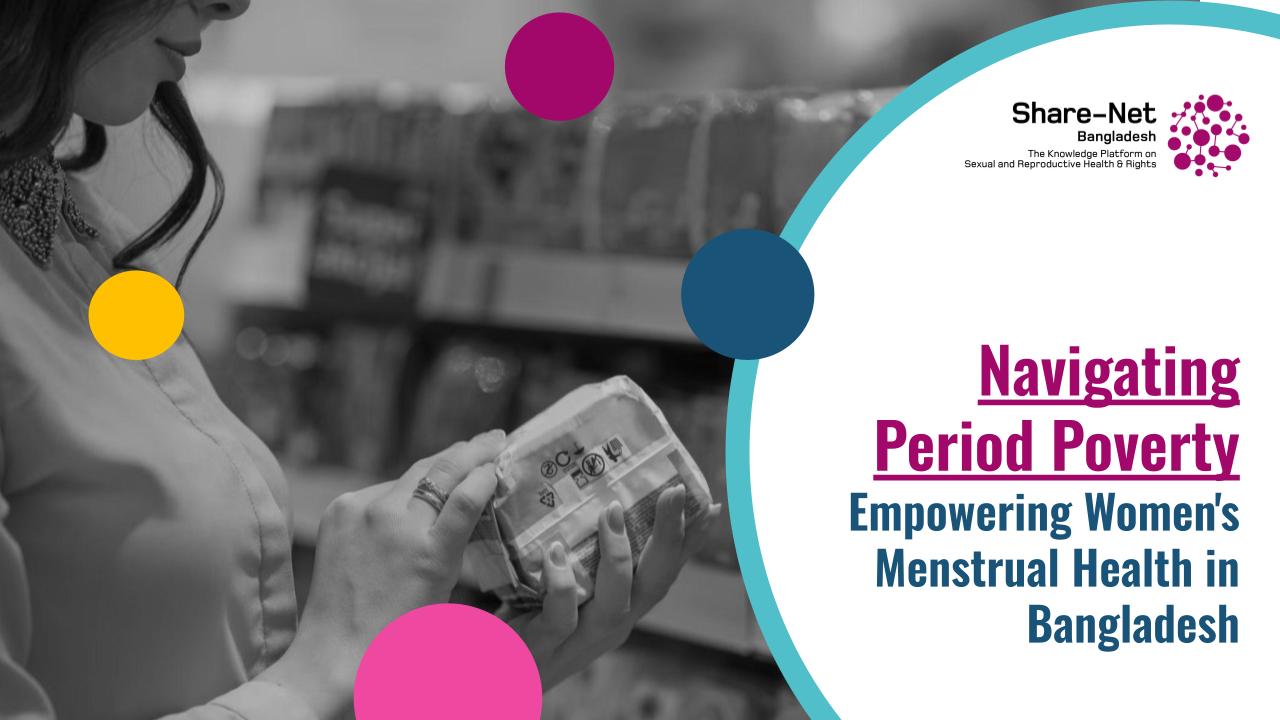Navigating Period Poverty: Empowering Women’s Menstrual Health in Bangladesh
The lack of education and awareness on menstrual health management (MHM) is a significant issue in Bangladesh, with only six percent of schools providing MHM education. This lack of information leads to poor access to affordable menstrual hygiene products, safe and private toilets or sanitation facilities, clean water, and waste disposal bins. The silencing of dialogue on MHM breeds myths, misinformation, and stigma, perpetuating a vicious cycle of period poverty.
The silencing of dialogue on MHM breeds myths, misinformation, and stigma, perpetuating a vicious cycle of period poverty. As appropriate knowledge, resources, and services remain scarce, families and peers fail to change their mindsets, and women and girls continue to avoid seeking help. These factors act as significant barriers to ensuring menstruating women’s and girls’ education, health literacy, employment, the opportunity to partake in sports, and safe water, sanitation, and hygiene (WASH).
MHM and adequate access to basic sanitation are inextricably tied to women’s socioeconomic well-being, the realisation of their human rights, sexual and reproductive health rights (SRHR), dignity, and gender equality. These factors alone have been attributed to low educational attainment among girls, particularly in low-income and rural communities, as well as poor menstrual hygiene practises, leaving women and girls vulnerable to negative health outcomes such as skin irritation, urinary tract infections, pregnancy complications, and fistulae.
Recommendations have emerged highlighting the need to combat period poverty through the widespread introduction of MHM programmes across all English and Bangla medium schools, as well as madrasas. These proposed actions are primarily focused on dismantling the barriers of misinformation and stigma surrounding menstruation. The suggested actions are age-specific, yet comprehensive, addressing topics such as basic sexual and reproductive health, dispelling social misconceptions, building self-esteem, promoting hygiene practises, ensuring safe disposal methods, and offering guidance on accessing affordable menstrual products and services.
The National Menstrual Hygiene Management Strategy, introduced in 2021, envisions funding comprehensive behavioral-change training modules and making MHM education mandatory from Class 5 onwards. Mothers and guardians play a pivotal role in imparting menstrual knowledge to their daughters, sometimes imposing restrictions on movement, diet, and social activities based on misconceptions. Engaging men and boys is also fundamental to creating an MHM-friendly environment, free from culturally reinforced patriarchal norms that undermine menstruating women’s dignity and deprive them of the physical and emotional support they need.
A lack of publicly available information raises questions about the successful implementation of any strategy, making it critical to establish structured monitoring and evaluation frameworks, particularly for MHM programmes in remote and rural areas, low-income settlements, marginalised communities, and madrasas. This limitation can be rectified through rigorous development of methodological and monitoring standards, and by having designated experts conduct technical programme evaluations to track progress, analyse results, identify barriers, and allow for improved design and strategic planning.
Changes in deeply entrenched unequal gender norms, low rates of literacy, and low decision-making power among women contribute to the continuing neglect of MHM education and awareness in households, schools, policymaking, and public institutions. However, cultivating a social and political landscape that empowers and dignifies women, addresses MHM as a key public health issue, and stimulates tangible policy action are steps in the right direction.
Source: The Daily Star



